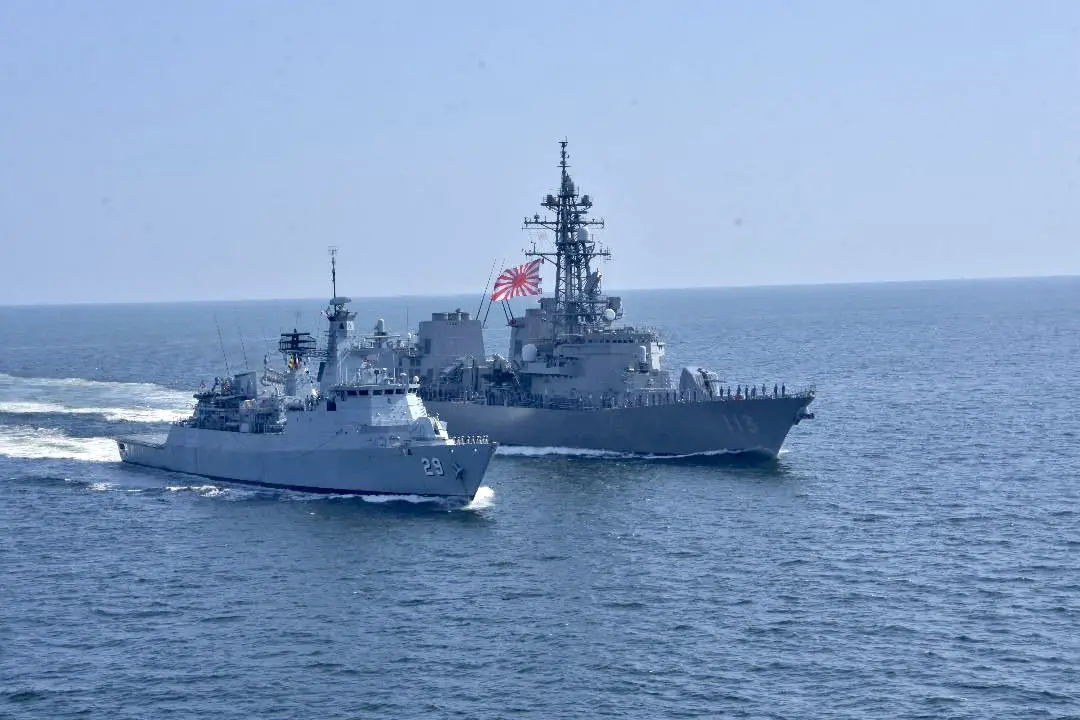Breaking news
Malaysia Navy conducts PASSEX with Japan in Malacca Strait.
According to information published by the HQ Western Fleet on February 14, 2024, the Royal Malaysian Navy and the Japan Maritime Self-Defense Force have further solidified their maritime partnership through a Passage Exercise (PASSEX) in the strategic Malacca Strait.
Follow Navy Recognition on Google News at this link
 Malaysian Lekiu class frigate KD Jebat and Japanese Takanami-class destroyer JS Sazanami. (Picture source: Malaysian MoD)
Malaysian Lekiu class frigate KD Jebat and Japanese Takanami-class destroyer JS Sazanami. (Picture source: Malaysian MoD)
The exercise, involving the Malaysian vessel KD Jebat and the Japanese vessel JS Sazanami, aimed at enhancing interoperability and reinforcing the strategic ties between Malaysia and Japan.
Relations between the two countries
The naval defense relations between Malaysia and Japan have significantly evolved over the years, reflecting a deepening security partnership amid regional maritime challenges, especially in the context of the South China Sea disputes.
A pivotal moment in this relationship was marked by the elevation of bilateral ties to a Comprehensive Strategic Partnership, announced during a meeting between Japan's Prime Minister Kishida Fumio and Malaysian Prime Minister Anwar Ibrahim.
This enhancement of relations underscores a mutual commitment to security assistance, including a grant of 400 million yen ($2.8 million) from Japan to boost Malaysia's maritime security.
This agreement involves the provision of equipment such as rescue boats and surveillance equipment, aiming to strengthen Malaysia's maritime capabilities amid growing tensions in the South China Sea.
The defense pact between Japan and Malaysia is part of a broader pattern of increasing security collaboration, which includes the transfer of defense technology and capacity building.
The relationship leverages Japan's Overseas Security Assistance (OSA) program, designed to support partner nations in bolstering their defenses without contravening Japan's post-war pacifist constitution.
The OSA program aims to enhance security and deterrence capabilities in recipient countries through non-lethal means, such as communications and surveillance systems, to create a more secure environment conducive to Japan's interests.
This initiative reflects a strategic approach by Japan to deepen security cooperation with countries facing maritime security challenges, particularly from China's assertive maritime claims.
























